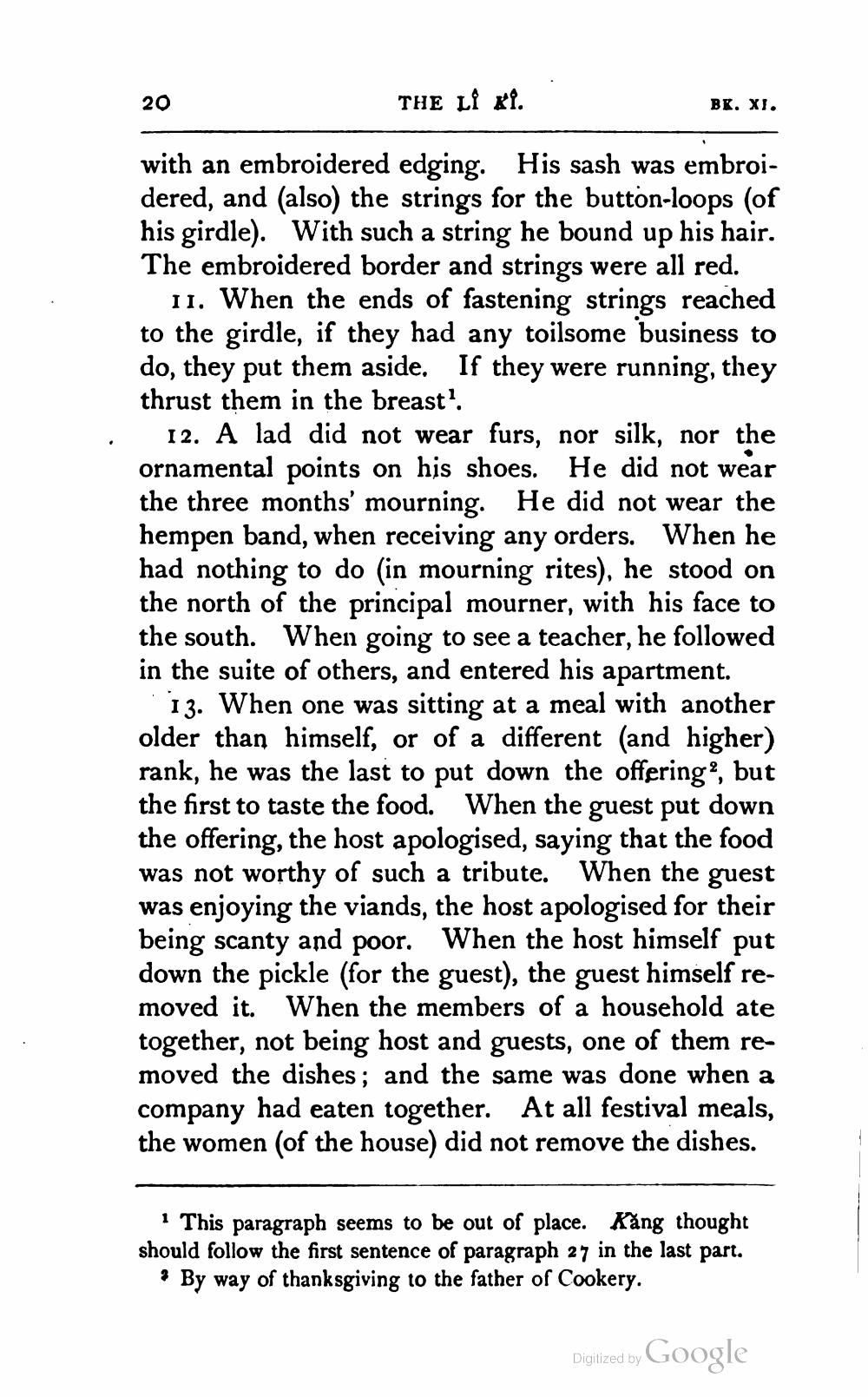________________
THE LI XI.
with an embroidered edging. His sash was embroidered, and (also) the strings for the button-loops (of his girdle). With such a string he bound up his hair. The embroidered border and strings were all red.
20
BK. XI.
11. When the ends of fastening strings reached to the girdle, if they had any toilsome business to do, they put them aside. If they were running, they thrust them in the breast1.
•
12. A lad did not wear furs, nor silk, nor the ornamental points on his shoes. He did not wear the three months' mourning. He did not wear the hempen band, when receiving any orders. When he had nothing to do (in mourning rites), he stood on the north of the principal mourner, with his face to the south. When going to see a teacher, he followed in the suite of others, and entered his apartment.
13. When one was sitting at a meal with another older than himself, or of a different (and higher) rank, he was the last to put down the offering2, but the first to taste the food. When the guest put down the offering, the host apologised, saying that the food was not worthy of such a tribute. When the guest was enjoying the viands, the host apologised for their being scanty and poor. When the host himself put down the pickle (for the guest), the guest himself removed it. When the members of a household ate together, not being host and guests, one of them removed the dishes; and the same was done when a company had eaten together. At all festival meals, the women (of the house) did not remove the dishes.
1 This paragraph seems to be out of place. Kăng thought should follow the first sentence of paragraph 27 in the last part. By way of thanksgiving to the father of Cookery.
Digitized by
Google




